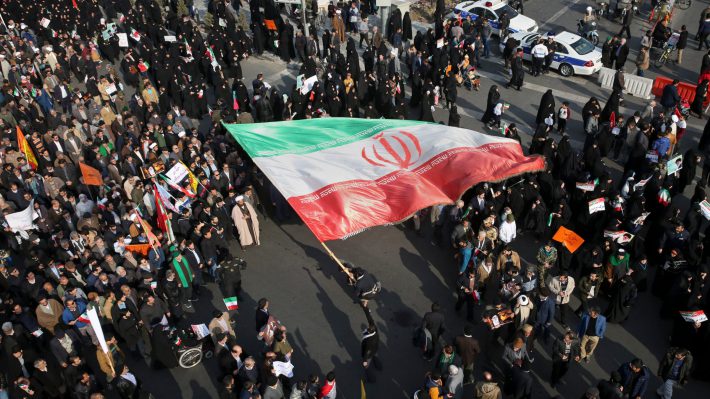The culture and aspiration for democracy must be deeply rooted in the culture of a people for this to occur. This is not the case in Iran. Opinion.
Many expected a coup in Iran. It is clear to everyone that a change in the policy of the evil empire will only occur after a change in its leaders.
In the meantime nothing has happened. The leadership is in place and there are no violent demonstrations by opponents of the regime.
Apparently, the assessment of those who hoped for a coup was wrong. A formula for changing the government by the people has long been coined – “a situation must be created whereby the people do not want the government and the government itself is unable to govern.”
This formula lacks one more important component – there must be an organized force that knows how to lead the people’s resistance in the desired direction.
All three of these components are missing from Iranian society today.
It is correct to assume that there are groups in Iran who are dissatisfied with the management of the Ayatollah regime and the suppression of freedom, but apparently not to the extent that this could lead to a substantial revolt of the people. The culture and aspiration for democracy must be deeply rooted in the culture of a people for this to occur. This is not the case in Iran.
Let’s not return to the mistake of the younger U.S. President Bush who wanted to grant democracy to the Iraqi people. It quickly became clear that the Iraqis, who were slaves to the rule of Saddam Hussein, do not crave Western democracy. On the contrary, after the elimination of the Iraqi dictator, anarchy and chaos threatened to take over the country.
I have not heard that the Iranian people have a tradition of democracy nor a craving for it. I still remember the embracing reception of the people upon the return of Ayatollah Khomeini from exile in France.
This is what the people wanted then. It is no coincidence that the Jihadist doctrine emerged in Iran, because it reflects the inner desires of the Persian character – discipline, centralized control, and suppression of opponents.
And if we talk about a different Iranian society model – what would they actually aspire to – the rule of the corrupt Reza Pahlavi? It is no coincidence that the Shah and his son failed to establish an organized underground of their supporters – the people did not want their leadership.
We have witnessed other coups d’état in our time. For example, the story of our neighbor, Syria. The stubborn armed struggle against the Assad regime lasted for many years and naturally ended with the fall of the regime when its survival forces were zero, causing Assad to flee to Moscow. Here is substantiation of the formula – the people do not want the government and the government is no longer able to survive.
But let’s not forget Turkey. There the opposition was funded and equipped by the people. Or take the example of the non-violent “Color Revolutions” in post-Soviet states when Prime Minister Yanukovych, who was elected illegally, fled to Moscow. And in the Ukraine, there has been resistance to Russian influence for a centuries (with the modern help of the CIA). The opposition created chaos in the capital. Yanukovych did not want to and was not able to suppress the rebellion and shed a sea of his people’s blood. Finally he gave up.
In Iran, the power of the Ayatollah is built as a regime of oppression for the sake of glory. Thus the Revolutionary Guard forces will be able to shed waterfalls of blood in eliminating any attempted takeover by other Islamic forces. This may be a key to the stability of the regime.
It is true that Iran was humiliated just now by the United States and Israel. But the belief in “Allahu Akbar” has not changed. This fanatical religious belief, as we are also learning in Gaza, will not yield to the threats of weapons.
Therefore, it seems that the possible direction for a change in the top of the Iranian regime may only come from the top itself. In the nature of things, in a crisis, there must be opposition to the ruling sect from people who are more flexible and also wrapped in ambition for power. The jealousy and hatred among the elite, as we have learned in Israel, can generate enormous energy and influence.
There are already signs also at the top of the Iranian regime that there is an attempt to replace Khomeini with more pragmatic people. They are certainly taking advantage of the failure of the ruling sect in order to seize power, as a kind of court coup.
But they will also have to take into account the forces of the “Revolutionary Guards.” To what extent they will be able to change the Jihadist direction of the “founding father” – Ayatollah Khomeini – only time will tell.





